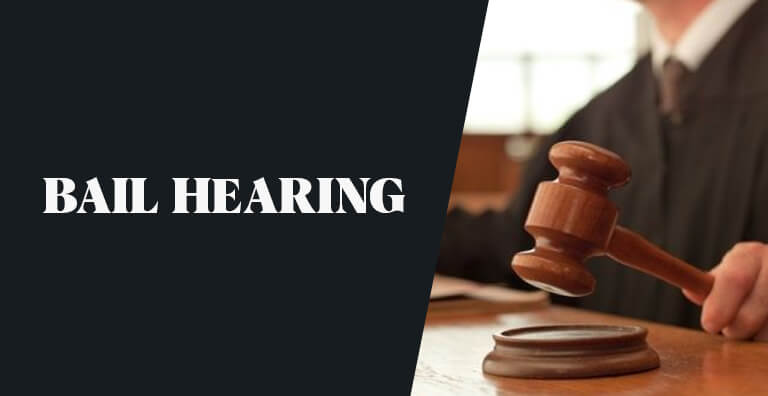As soon as people hear the word ‘bail’, many associates it with the American judicial system, where the accused needs to either borrow or find money to ‘make bail’. Or at least that is what is depicted on TV and in movies and books.
However, this is far from how bail operates in Ontario’s criminal courts.
So, how does bail work in Ontario?
Here, we explore what you need to know about the bail system in this province
A Short Explanation of the Bail System in Ontario
Here, we explain the basics of Ontario’s bail system.
What is bail?
‘Bail’ refers to the procedure that determines whether the person charged with a criminal offence will be detained or released while they wait to go to trial.
When a person is accused of a crime, they are taken into custody and kept in jail until they need to appear in a court of law. Their bail hearing must be conducted within 24 hours of being arrested if a judge is available, or as soon as possible if one isn’t.
What happens at a bail hearing?
Once the hearing begins, the Crown presents its allegations by reading them out from a synopsis prepared by the police. In some cases, the Crown may choose to call a witness. In most instances, this is the police officer conducting the investigation.
Once the allegations have been put forth by the Crown, the defendant’s duty counsel or lawyer is allowed to present the potential surety or the defendant. Then, the duty counsel or lawyer tries to convince the court that, in the event of the defendant being released on bail, they will abide by their bail conditions. This is either with the assistance of their surety or on their own recognizance.
This helps the Court decide whether it should release the defendant on bail or hold them over for trial.

How can someone propose themselves as a surety in a Canadian court?
Here is a checklist for individuals who want to propose themselves as a surety in a Canadian court during someone’s bail hearing.
- Must be over 21
- Shouldn’t have a criminal record
- Should attend the bail hearing punctually
- Needs to be able to oversee the defendant, as required by the Court
- Should have money in equity or savings that can be pledged to the Court (as security of promise)
- Must be able to understand and implement the conditions set forth by the court
How can a criminal defence lawyer help during a bail hearing?
If you or someone you know is awaiting bail, consult a criminal defence lawyer as they will know how bail works.
Keep in mind that the decision to grant or deny bail depends completely on the judge and the evidence presented during the initial appearance is vital to obtain a fair bail amount, if one is requested. Hence, it’s best for defendants to hire an experienced criminal lawyer who can argue on their behalf. They can properly present favourable testimony, such as the defendant’s connection to the community, character, and lack of threat and criminal history.
Your lawyer can also help select a surety who may be required to pledge an amount of money to the court. Either the defendant or the surety will be responsible for paying this money to the court should you break your bail conditions.
What is the best course of action to take in case someone needs bail?
If you or someone you know requires bail, the first thing to do is to hire an experienced criminal defence lawyer as soon as possible. A practicing lawyer will have a valid license issued by the Law Society of Ontario, allowing them to appear for bail hearings.
Furthermore, your surety should be present on the day of the hearing. Make sure they get there early to give your lawyer ample time to review any plan. Since bail hearings can take a considerable amount of time, especially given that the defendant will be lumped in with other defendants during a court session, ask your potential surety to keep their whole day free.
Also, since a bail hearing is a formal process, the defendant and their surety are required to dress appropriately as a way of conveying their respect to the Crown.
Being accused of a crime can be overwhelming. Dealing with the Canadian bail system and wondering if you will be released doesn’t help. That’s where experienced criminal defence lawyers can help. Use these insights on the topic to help you navigate the bail process with less stress.

